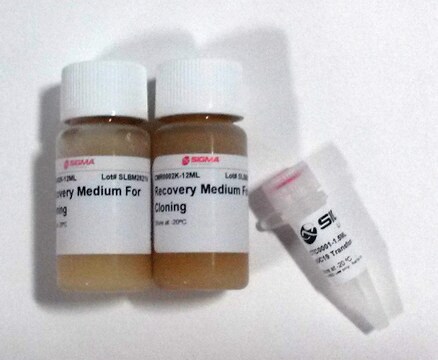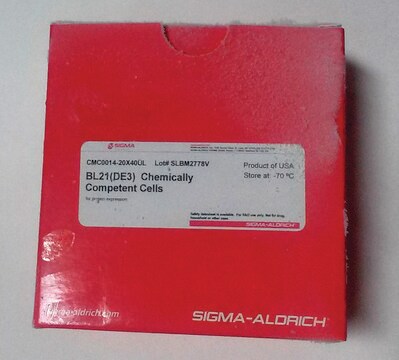69449
BL21 Competent Cells - Novagen
Escherichia coli, rod shaped
Synonym(s):
BL21 cell line, Novagen competent cells
About This Item
Recommended Products
product name
BL21 Competent Cells - Novagen, BL21 host strain is the most widely used host background and has the advantage of being deficient in both lon and ompT proteases.
biological source
Escherichia coli
Quality Level
manufacturer/tradename
Novagen®
storage condition
OK to freeze
avoid repeated freeze/thaw cycles
growth mode
adherent or suspension
morphology
rod shaped
technique(s)
microbiological culture: suitable
cell transformation
transformation efficiency: >2×107 cfu/μg
shipped in
dry ice
storage temp.
−70°C
Related Categories
General description
Components
•2 × 0.2 ml5 × 0.2 mlBL21 Competent Cells
•2 × 2 ml4 × 2 mlSOC Medium
•10 µl10 µlTest Plasmid
Warning
Other Notes
159, 283–287.
Legal Information
Storage Class Code
10 - Combustible liquids
WGK
WGK 2
Certificates of Analysis (COA)
Search for Certificates of Analysis (COA) by entering the products Lot/Batch Number. Lot and Batch Numbers can be found on a product’s label following the words ‘Lot’ or ‘Batch’.
Already Own This Product?
Find documentation for the products that you have recently purchased in the Document Library.
Our team of scientists has experience in all areas of research including Life Science, Material Science, Chemical Synthesis, Chromatography, Analytical and many others.
Contact Technical Service



